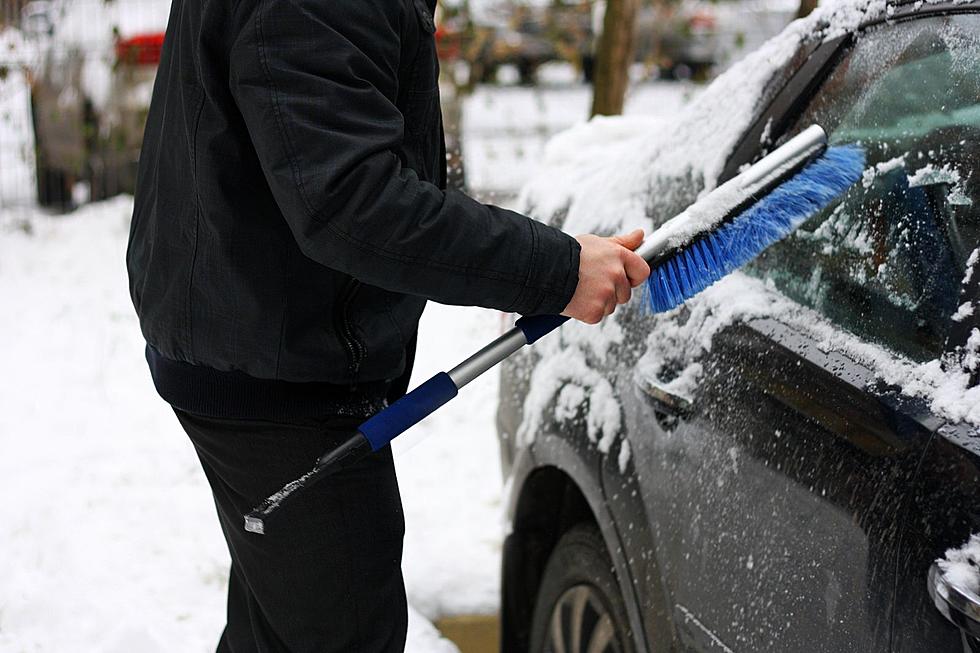
Caring for Device Batteries in the Era of Remote Work
ST. CLOUD – When the coronavirus pandemic forced the closure of many offices and businesses last spring, it ushered in a new era of telecommuting across the US and the world.
Telecommuting that, of course, wouldn’t be possible without phones, tablets and other battery-powered wireless devices.
Hunter Jarnot, Device Manager with St. Cloud-based Batteries Plus Bulbs' "We Fix It" department, says his shop replaces around 20 mobile phone batteries a day – a jump since the pandemic started.
“It’s easily the most common repair we see,” Jarnot said. “There’s definitely been an increase and I think it’s because more people are on their phones all day, working remotely.”
“And, of course, you can be on your phone all day when you’re home and working alone,” he added.
Jarnot says there are a lot of small things users can do to keep their device batteries in tip-top shape for longer stretches – the biggest being not leaving them connected to a charger for too long.
“A lot of people like to charge their devices overnight so that it’s at 100 percent when they wake up," Jarnot said. "But, most devices take about two or three hours to fully charge, so when you have it on (the charger) for that extra six or seven hours when you’re asleep, it can actually be damaging to your battery.”
“It’s better for your battery to be at 80 percent when you go to bed than for it to be on the charger all night,” he added.
Jarnot says there are a variety of other, lesser known ways for phone and tablet users to care for their batteries.
“If you’re not using WiFi, make sure it’s turned off,” Jarnot said. “Otherwise, your phone will be constantly searching for something to connect to, which drains your battery.”
The same goes for Bluetooth.
“If there are Bluetooth devices you’re not using, turn your Bluetooth off,” he said. “Because again, if it’s on, it’s always constantly searching in the background for something to connect to. Just turn it off and then back on when you need it.”
Other power-saving strategies Jarnot recommends are switching your phone to “dark mode,” keeping the device’s brightness levels set to low, closing out apps when you’re finished with them, and making sure you turn off the location services feature for your apps.
“(Location services) is something that’s a little more difficult for some people,” Jarnot said. “It’s something you might need to look into and learn a little bit more about your phone. Most of the time, you’ll open an app and it will say, ‘do you want this app to use your location?’ If you hit ‘allow,’ which can be good for some apps depending on how you use them, it’s going to constantly be using your phone and GPS to track your location.”
“So, it doesn’t hurt to go through your apps and turn that off where you don’t need it,” he added. “That’ll really save a lot of power.”
Jarnot says the typical phone or tablet battery will last for about three years before showing signs of wear.
“Now, obviously with better technology comes better batteries, so these newer phones batteries should have longer life spans,” he said. “But again, a lot of factors have to do with how you take care of your phone and how exactly you use it.”
Obviously, it’s time to replace the battery when the device will no longer power up or hold a charge. But, those are not the only things users should be mindful of, Jarnot says.
“A big thing to pay attention to, because it can be somewhat dangerous in some cases, is if your phone is getting hot,” Jarnot said. “That’s definitely an indication there’s something wrong with your power system. In that case, it’s good to take your phone’s case off and see if (the phone) gets hot when you’re charging or using it.”
Jarnot says a lousy battery can dramatically affect the processing speed of a phone or tablet.
“If things like apps aren’t loading as quickly, that’s a sign your battery might need to be replaced,” he said. “Your battery really is the sole power source for your phone, so it really needs to be 100 percent in order for everything to function properly.”
The 10 most Likely Spots to Get a Speeding Ticket Around St. Cloud
More From AM 1240 WJON









